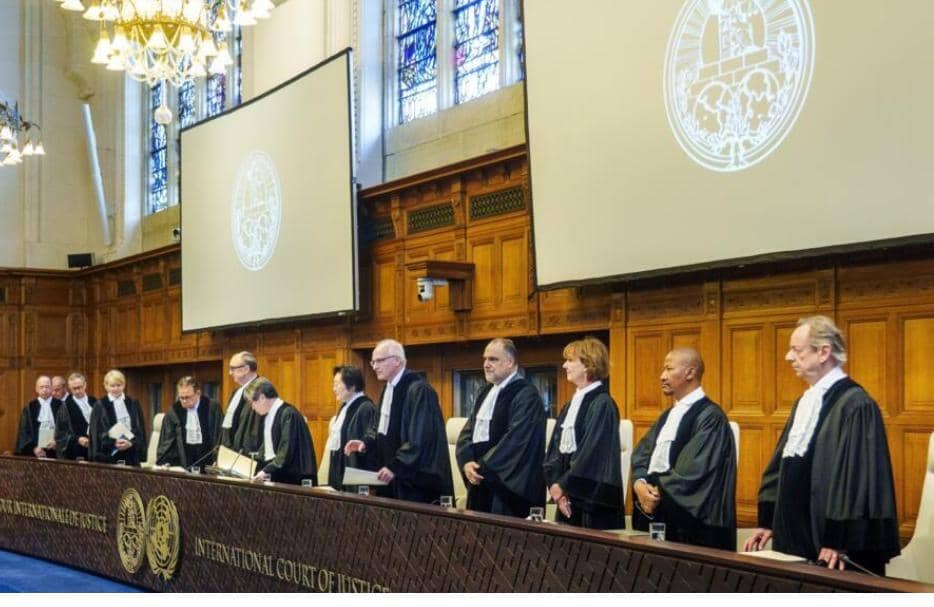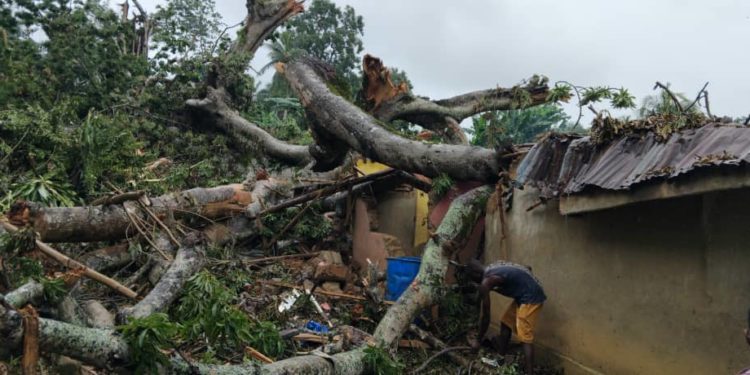By Tejan Macavoray
On July 25, 2025, the International Court of Justice (ICJ) in the Hague (Netherlands) the principal judicial organ of the United Nations—issued a landmark advisory opinion asserting that countries can be held legally accountable for failing to prevent or mitigate climate change. While not legally binding, the court’s opinion is expected to reshape the global legal landscape surrounding climate responsibility and international obligations. For climate-vulnerable nations like Sierra Leone, the ruling could represent a historic turning point in the global push for justice, equity, and reparation.
The International court of justice ruling was prompted by a resolution passed at the United Nations General Assembly in March 2023, spearheaded by Vanuatu, a small island nation facing existential climate threats. The resolution garnered support from over 130 nations, demonstrating widespread recognition of the growing crisis.
The court’s advisory opinion reaffirms that states have legal duties under international law—including the UN Charter, the Universal Declaration of Human Rights, and multilateral environmental agreements—to prevent environmental harm that transcends national borders. Crucially, it recognizes climate change as a matter of intergenerational equity and human rights, not just environmental policy.
This ruling, though advisory, sends a powerful message: nations—especially major historical emitters—could now face formal legal scrutiny for climate inaction, and developing countries suffering disproportionate losses have legitimate grounds to seek accountability.
Sierra Leone contributes less than 0.03% of global greenhouse gas emissions, yet it is consistently ranked among the most climate-vulnerable countries globally. According to the Notre Dame Global Adaptation Initiative (ND-GAIN) Index, Sierra Leone scores low on both climate readiness and resilience, while simultaneously facing growing exposure to environmental shocks.
The consequences of climate change in Sierra Leone are severe and escalating:
The 2017 Freetown Mudslide—triggered by intense and prolonged rainfall—claimed over 1,100 lives and displaced thousands. This tragedy was a wake-up call for the nation and the world about how climate change multiplies disaster risk.
Flooding events in 2019, 2021, and 2023 displaced over 10,000 people combined, particularly in informal settlements and coastal slums like Susan’s Bay and Kroo Bay.
Sea-level rise continues to erode Sierra Leone’s western coastline, putting densely populated communities at risk and threatening national assets such as Queen Elizabeth II Quay, a critical maritime port.
These impacts occur against a backdrop of low adaptive capacity, with limited infrastructure, weak disaster management systems, and inadequate access to climate finance.
Sierra Leone is a party to numerous international frameworks that reaffirm its commitment to climate action:
The Paris Agreement (2015): Through its Nationally Determined Contributions (NDCs), Sierra Leone has pledged to reduce emissions by 16.5% by 2030, conditional on international support, while calling for climate adaptation funding.
The UN Framework Convention on Climate Change (UNFCCC): Sierra Leone actively engages in climate negotiations, often highlighting the country’s need for loss and damage financing, technology transfer, and capacity-building.
The Sendai Framework for Disaster Risk Reduction (2015–2030): The country has committed to reducing disaster risk by strengthening early warning systems and disaster preparedness.
The African Union’s Climate Strategy 2022–2032: Sierra Leone is part of the AU framework, which promotes coordinated climate diplomacy and green growth across the continent.
However, implementation remains hindered by lack of funding, weak enforcement mechanisms, and limited institutional capacity.
To date, less than 2% of the $100 billion annual global climate finance commitment—a pledge made by developed countries under the Paris Agreement—has reached Sierra Leone. This gross imbalance further underlines the urgency of the International Criminal Court ruling.
The ICJ’s opinion opens a pathway for Sierra Leone and other vulnerable states to pursue legal accountability, especially if richer, higher-emitting nations continue to fall short on climate finance, mitigation, and adaptation.
Potential actions include:
Demanding Compensation: Sierra Leone can now join multilateral efforts to claim compensation for irreversible loss and damage, using legal channels such as the International Tribunal for the Law of the Sea (ITLOS) or future climate courts.
Influencing COP Negotiations: The advisory opinion strengthens Sierra Leone’s leverage at upcoming COP summits, particularly in advocating for a stronger Loss and Damage Fund, agreed upon at COP27 in Sharm el-Sheikh and operationalized at COP28 in Dubai.
Supporting Regional Climate Litigation: The ECOWAS Court of Justice and the African Court on Human and Peoples’ Rights may also begin recognizing climate-related cases, especially where human rights are threatened by environmental inaction.
To capitalize on the ICJ ruling, Sierra Leone must:
Enhance Legal and Technical Capacity: Equip national institutions—like the Environmental Protection Agency (EPA-SL), the Ministry of Justice, and the Ministry of Environment—to engage in international legal processes and negotiations.
Document Evidence: Strengthen data collection on climate impacts, damage assessments, and vulnerability metrics to build legally credible claims.
Build Regional and Global Alliances: Work with groups like the Climate Vulnerable Forum, AOSIS, and the African Group of Negotiators to form coalitions around legal actions and coordinated demands.
Amplify Local Voices: Engage civil society, media, and youth in climate education and advocacy, ensuring grassroots voices shape policy priorities and push for justice.

The ICJ ruling may not carry enforcement power, but its symbolic and legal significance is profound. It reframes climate inaction as a matter of international law and justice, not just failed diplomacy.
For Sierra Leone—a nation whose people suffer daily from climate consequences they did not cause—this represents a historic opportunity to move from victimhood to agency, from injustice to advocacy. The world has been put on notice: silence and inaction are no longer immune to legal challenge.
Whether Sierra Leone can now seize this moment depends on bold leadership, global solidarity, and a renewed sense of urgency. The road ahead is difficult, but for the first time, the law may be on the side of the vulnerable.






















